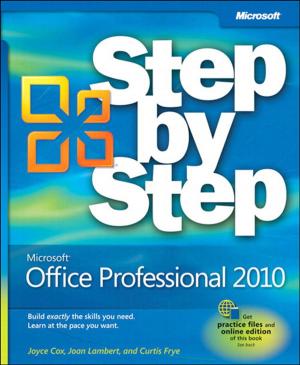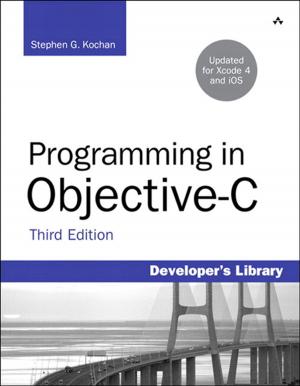Documenting Software Architectures
Views and Beyond
Nonfiction, Computers, Programming, Software Development| Author: | Paul Clements, Felix Bachmann, Len Bass, David Garlan, James Ivers, Reed Little, Paulo Merson, Robert Nord, Judith Stafford | ISBN: | 9780132488594 |
| Publisher: | Pearson Education | Publication: | October 5, 2010 |
| Imprint: | Addison-Wesley Professional | Language: | English |
| Author: | Paul Clements, Felix Bachmann, Len Bass, David Garlan, James Ivers, Reed Little, Paulo Merson, Robert Nord, Judith Stafford |
| ISBN: | 9780132488594 |
| Publisher: | Pearson Education |
| Publication: | October 5, 2010 |
| Imprint: | Addison-Wesley Professional |
| Language: | English |
Software architecture—the conceptual glue that holds every phase of a project together for its many stakeholders—is widely recognized as a critical element in modern software development. Practitioners have increasingly discovered that close attention to a software system’s architecture pays valuable dividends. Without an architecture that is appropriate for the problem being solved, a project will stumble along or, most likely, fail. Even with a superb architecture, if that architecture is not well understood or well communicated the project is unlikely to succeed.
Documenting Software Architectures, Second Edition, provides the most complete and current guidance, independent of language or notation, on how to capture an architecture in a commonly understandable form. Drawing on their extensive experience, the authors first help you decide what information to document, and then, with guidelines and examples (in various notations, including UML), show you how to express an architecture so that others can successfully build, use, and maintain a system from it. The book features rules for sound documentation, the goals and strategies of documentation, architectural views and styles, documentation for software interfaces and software behavior, and templates for capturing and organizing information to generate a coherent package. New and improved in this second edition:
- Coverage of architectural styles such as service-oriented architectures, multi-tier architectures, and data models
- Guidance for documentation in an Agile development environment
- Deeper treatment of documentation of rationale, reflecting best industrial practices
- Improved templates, reflecting years of use and feedback, and more documentation layout options
- A new, comprehensive example (available online), featuring documentation of a Web-based service-oriented system
- Reference guides for three important architecture documentation languages: UML, AADL, and SySML
Software architecture—the conceptual glue that holds every phase of a project together for its many stakeholders—is widely recognized as a critical element in modern software development. Practitioners have increasingly discovered that close attention to a software system’s architecture pays valuable dividends. Without an architecture that is appropriate for the problem being solved, a project will stumble along or, most likely, fail. Even with a superb architecture, if that architecture is not well understood or well communicated the project is unlikely to succeed.
Documenting Software Architectures, Second Edition, provides the most complete and current guidance, independent of language or notation, on how to capture an architecture in a commonly understandable form. Drawing on their extensive experience, the authors first help you decide what information to document, and then, with guidelines and examples (in various notations, including UML), show you how to express an architecture so that others can successfully build, use, and maintain a system from it. The book features rules for sound documentation, the goals and strategies of documentation, architectural views and styles, documentation for software interfaces and software behavior, and templates for capturing and organizing information to generate a coherent package. New and improved in this second edition:
- Coverage of architectural styles such as service-oriented architectures, multi-tier architectures, and data models
- Guidance for documentation in an Agile development environment
- Deeper treatment of documentation of rationale, reflecting best industrial practices
- Improved templates, reflecting years of use and feedback, and more documentation layout options
- A new, comprehensive example (available online), featuring documentation of a Web-based service-oriented system
- Reference guides for three important architecture documentation languages: UML, AADL, and SySML















